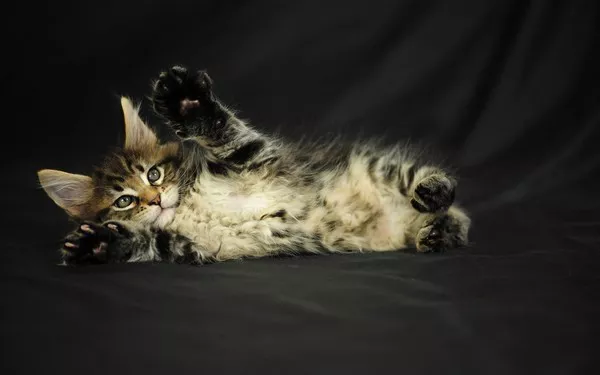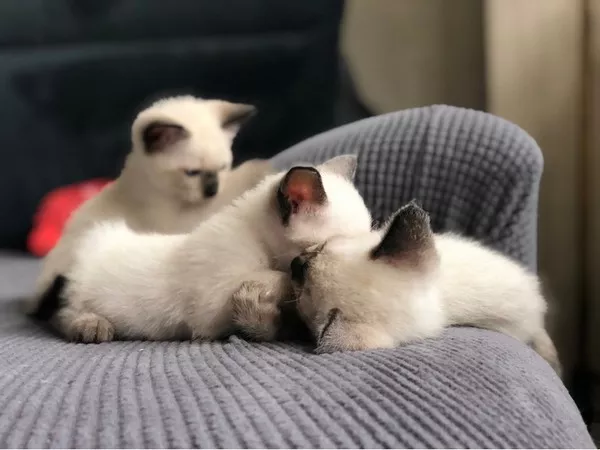Maine Coon cats, known for their majestic appearance and friendly demeanor, have a fascinating history rooted in the wilds of North America. Understanding their natural diet is essential for providing the best care to these magnificent felines. In this article, we’ll delve into the world of Maine Coon cats, exploring their ancestral diet, hunting habits, and how you can apply this knowledge to ensure their well-being as beloved pets.
1. The Maine Coon’s Wild Origins
Native to North America
Maine Coon cats are believed to be native to the northeastern United States, particularly in the state of Maine, where they were first recognized as a distinct breed. Their ancestry can be traced back to the rugged wilderness of this region.
Evolutionary Adaptations
Over centuries of surviving in the wild, Maine Coon cats developed specific characteristics that made them well-suited for their environment, including their dietary preferences.
2. The Natural Diet of Maine Coon Cats
Carnivorous Instincts
Maine Coon cats are obligate carnivores, which means their bodies are designed to thrive on a diet primarily composed of animal-based proteins. Their wild ancestors would hunt for prey to satisfy their nutritional needs.
Protein-Rich Diet
In the wild, Maine Coon cats would primarily feed on small mammals, birds, and occasionally fish. These protein-rich sources provided them with essential nutrients like amino acids, taurine, and vitamins.
3. Hunting Habits and Behaviors
Skilled Hunters
Maine Coon cats are renowned for their hunting prowess. They are skilled stalkers and excellent climbers, allowing them to capture various prey.
Cooperative Hunting
In their wild habitats, Maine Coon cats may have engaged in cooperative hunting, working in pairs or small groups to catch larger prey. This behavior reflects their social and adaptable nature.
4. Domestication and Diet Evolution
Transition to Domestic Life
As Maine Coon cats transitioned from the wild to domestic life, their diet also evolved. They became reliant on human caregivers for their meals.
Commercial Cat Food
Today, Maine Coon cats thrive on high-quality commercial cat food formulated to meet their nutritional needs. These foods typically contain a balance of animal proteins, fats, and essential nutrients.
5. Nutritional Requirements of Maine Coon Cats
Protein
Protein remains a cornerstone of a Maine Coon cat‘s diet, whether in the wild or as domesticated pets. High-protein cat foods mimic their ancestral diet and support muscle development and overall health.
Taurine
Taurine is a crucial amino acid for Maine Coon cats. Quality cat foods are fortified with taurine to ensure heart and eye health.
Fats and Omega-3 Fatty Acids
Fats, particularly omega-3 fatty acids, contribute to healthy skin and a luxurious coat. Look for cat foods that contain these essential nutrients.
Vitamins and Minerals
Maine Coon cats require a balance of vitamins and minerals, such as vitamin A, vitamin D, calcium, and phosphorus, to maintain strong bones and overall vitality.
6. Tips for Feeding Your Maine Coon Cat
Choose Premium Cat Food
Select high-quality cat food designed to meet the nutritional needs of Maine Coon cats. Look for formulations that list meat as the primary ingredient.
Controlled Portions
Be mindful of portion control to prevent obesity. Maine Coon cats can be prone to weight gain, so follow feeding guidelines provided on the cat food packaging.
Fresh Water
Always provide fresh and clean water to keep your Maine Coon cat properly hydrated.
Conclusion
Understanding the natural diet and hunting behaviors of Maine Coon cats offers valuable insights into their nutritional requirements. While these majestic felines may have once relied on wild prey for sustenance, they have adapted to thrive on premium commercial cat foods designed to meet their dietary needs. By selecting the right cat food and ensuring proper portion control, you can provide your Maine Coon cat with the best possible nutrition, ensuring they lead healthy, happy lives as cherished members of your family.




















